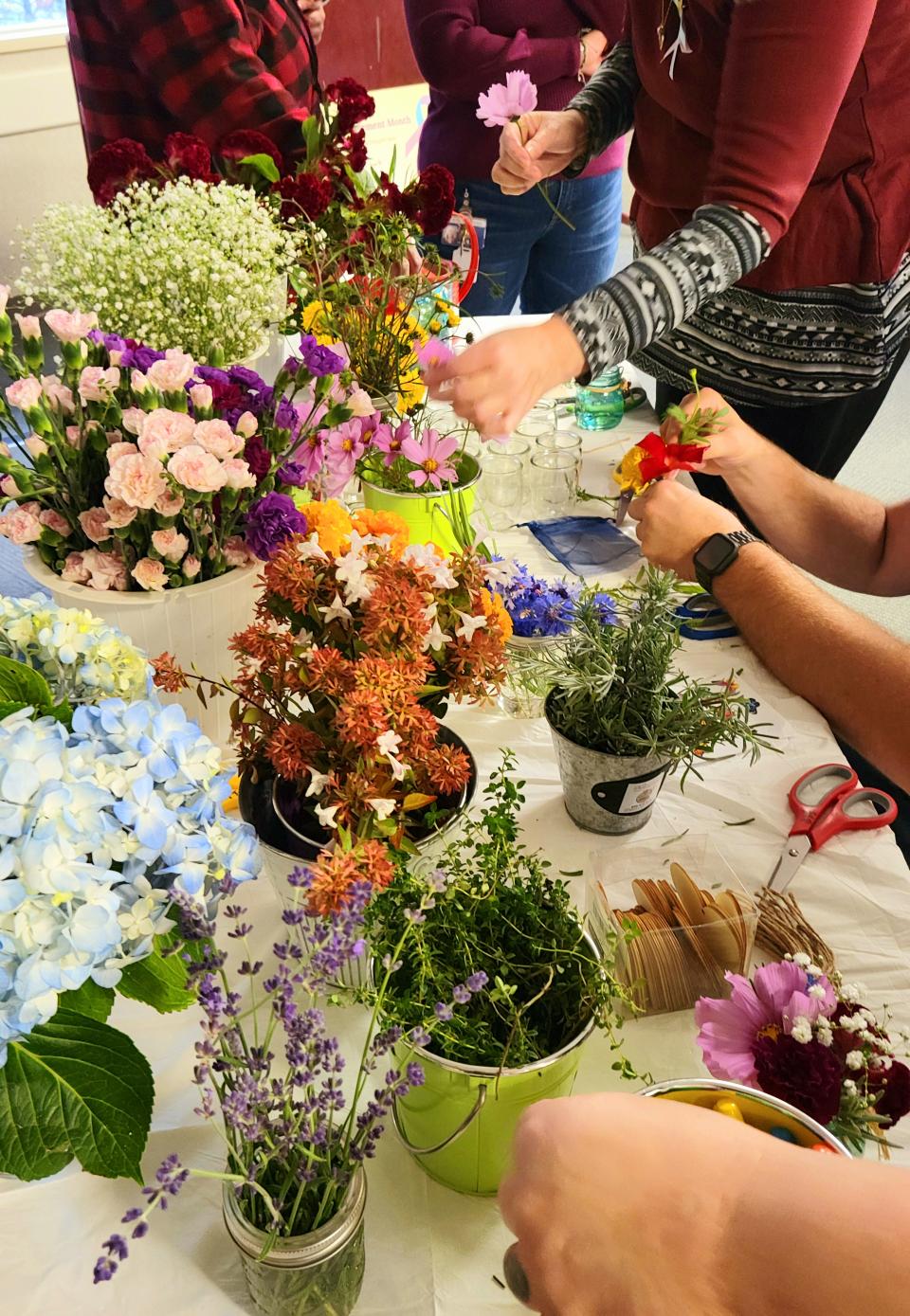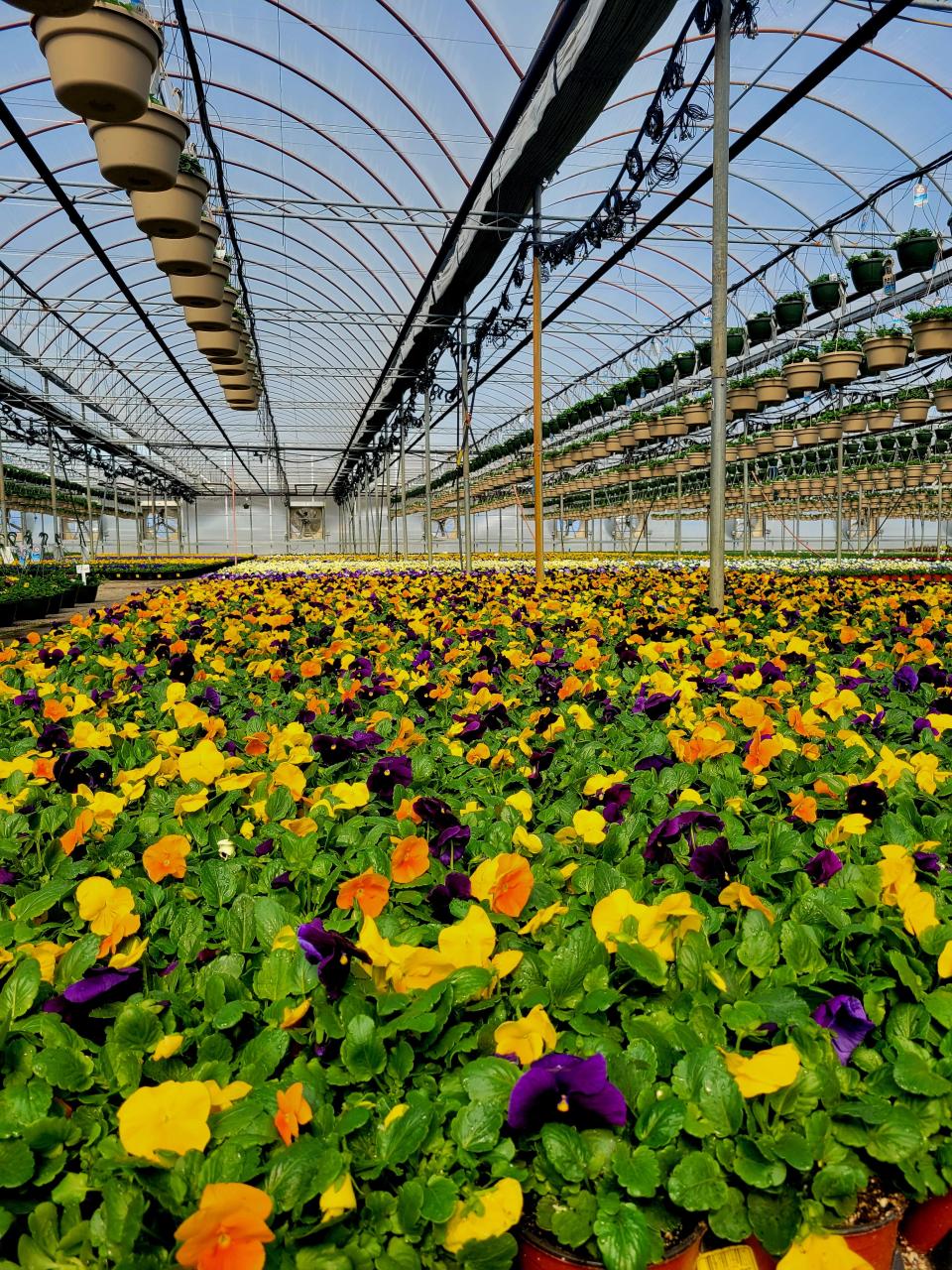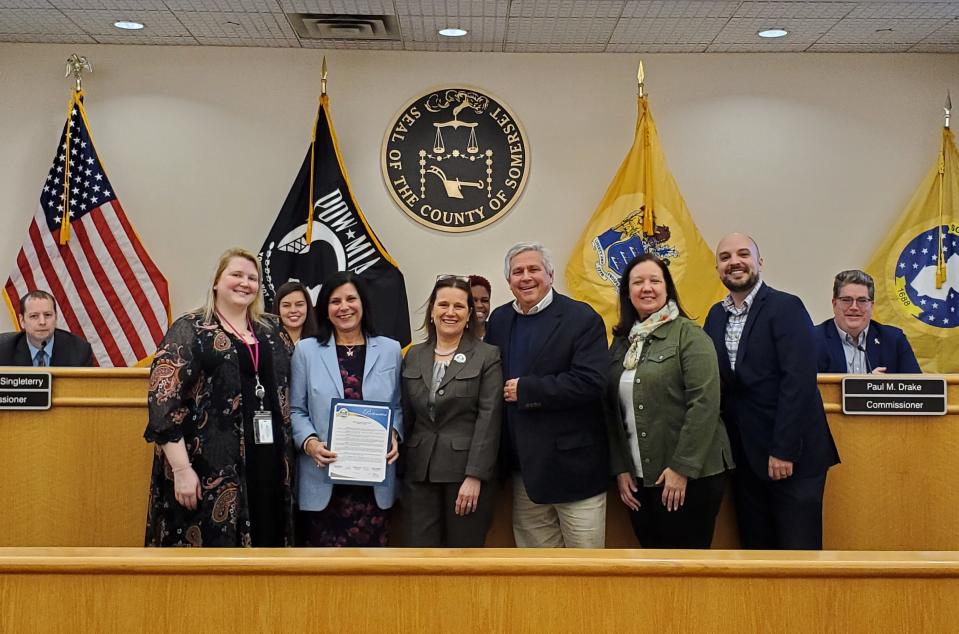It's Horticultural Therapy Week in New Jersey. These are the benefits
The official start of spring is March 19 when day and night are equal length, and the sun is directly above the Equator. The seasonal cycles of nature are bursting to life. Like nature’s clockwork, our seasonal rhythms tell us to connect with nature, plant, garden and get outside.
This week, March 17-24, also marks Horticultural Therapy Week, to increase awareness of the therapeutic benefits of the time-proven practice which uses plants and nature-based materials, with or without a physical garden space, to enhance the quality of life for people around the globe.
The poet William Wordsworth understood what modern neuroscience confirms, that nature animates the mind, and the mind in turn animates nature. He believed that a living relationship with nature in this way is a source of strength that can help foster the healthy growth of the mind, and what it means to be a gardener, according to Sue Stuart-Smith, author of “The Well Gardened Mind.” Wordsworth understood what it means to be a gardener.

Plants have universal appeal. We use them in celebration and in sorrow, in sickness and in health; we wear them, we cook with them, we alter them to find new ways to apply their use. We respond to plants and plants in turn respond to our care. Research has found that office workers with a view of nature were happier and healthier at work. Exposure to natural environments of the most mundane sort has proven to lift people’s moods and enhance their ability to mentally focus.
Today gardening is America’s number one leisure activity. According the American Gerontological Society of America, gardening is cognitively protective, meaning healthier aging. Dr Benjamin Rush, signer of the Declaration of Independence and a psychiatrist, discovered in 1812 that patients who worked in gardens had better recovery compared to those who had not had the same gardening experience. The ancient origin and use of plants dates to 200 BC in the Temple of Ed Fu, on the west bank of the Nile, in a room called the Laboratory where 100 recipes using plants are depicted in Hieroglyphs, for sickness and health, household products, pest control, and Kyphi, perfume and aromatherapy.
There is much to celebrate in the marriage of modern science in agriculture with the latest outcomes of how working with plants is good for you. These include keeping you healthy, easing chronic pain, reducing stress, offering social outlet, improving mood, concentration and your diet. Additionally, gardens are now accessible with adaptive tools and devices and planting tables and spaces to accommodate abilities.

The American Horticultural Therapy Association (AHTA), established in 1973, is the national nonprofit organization in the United States advocating for the development of the horticultural therapy profession and the practice of horticulture as therapy for human wellbeing. Its mission is to advance the profession of horticultural therapy as a therapeutic and rehabilitative modality. The AHTA celebrated its 50-year anniversary last year.
Horticultural therapy is also known as therapeutic horticulture, and garden therapy. It is the engagement of a client in horticultural activities led by a credentialed horticultural therapist, known as HTR, to achieve specific and documented treatment goals. Horticultural therapy is practiced through vocational, social and therapeutic programs, and successfully enables and empowers individuals to achieve their maximum independence in an array of settings and embraces the healing power of nature for physical and psychosocial wellbeing.
New Jersey became the first state to officially recognize horticultural therapy through Horticultural Therapy Week, designated nationally in 2006, as an extremely beneficial practice for people at various levels of participation. “The New Jersey Farm Bureau was, and continues to be a supporter of the effort,” said Allen Carter Jr., president.

Working with plants is good for you. This includes keeping you healthy, easing chronic pain, reducing stress, offering social outlet, improving concentration and improving your diet. Additionally, gardens are now accessible with adaptive tools and devices and planting tables and spaces to accommodate abilities. People who can benefit from therapeutic horticulture include veterans, those with PTSD, depression, anxiety, brain injury, dementia, stroke, Parkinson’s Disease, cancer, cancer survivorship, addiction, recovery and eating disorders. Programs can be active, for example, sowing seeds, planting, digging; and passive, for example, sitting in nature, bird watching and listening to nature.
Celebrations will be taking place around the Garden State. Get outside, discover or rediscover nature, visit a greenhouse, park, garden center – awaken the senses.
This article originally appeared on MyCentralJersey.com: Horticultural Therapy Week: These are the benefits

